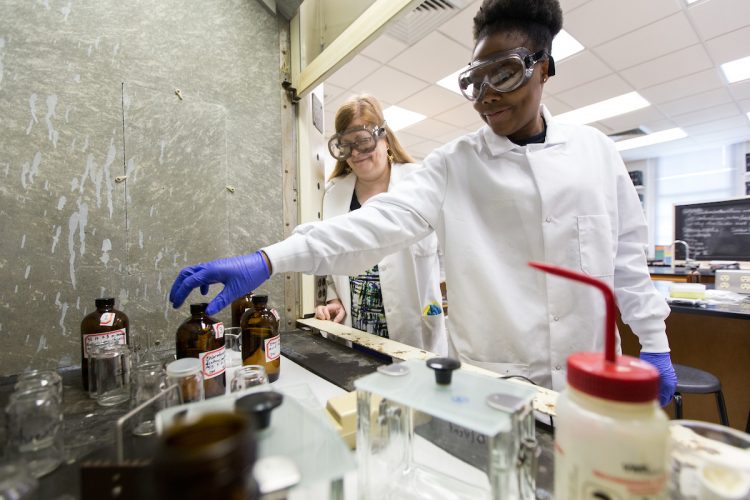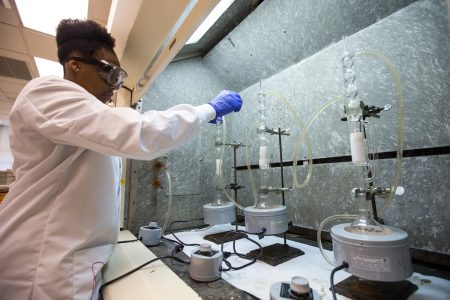What’s in Your Hair?

Chemistry professor Ann Fabirkiewicz and Drucilla Williams ’18
Drucilla Williams ’18 can’t help herself from thinking about the chemistry behind everyday items and activities. This summer, she’s putting that curiosity to the test. The chemistry major from Jamaica is examining something that directly affects everyone’s daily routine—their hair.
Williams is partnering with chemistry professor Ann Fabirkiewicz for the Summer Research project, “Lipid Fingerprinting for Hair Analysis.” Using thin layer chromatography (TLC), Williams and Fabirkiewicz are comparing lipid properties in the three major types of hair—African, Asian, and Caucasian. From there, they hope to discover a new method for lipid staining.
 “I’ve always been really interested in hair, like the chemistry behind it in terms of different types and why they look and act the way they do,” Williams said. “I had different ideas about hair before this and didn’t think about the kind of research I could do before this project.”
“I’ve always been really interested in hair, like the chemistry behind it in terms of different types and why they look and act the way they do,” Williams said. “I had different ideas about hair before this and didn’t think about the kind of research I could do before this project.”
So far, Williams has been practicing the TLC techniques on wool samples, which provide a close simulation to human hair. She believes this kind of experience aligns perfectly with her goal of entering a career in medical chemistry.
“I came to Randolph already knowing I wanted to major in chemistry,” she said. “My mind was never inclined towards art or language classes, but when it came to science, I’ve always enjoyed it. I’ve grown to like it even more in college, and I feel like the things I learn are applicable to so many things in life.”
Fabirkiewicz said the Summer Research program is a perfect time for Williams to get lab experience outside of the classroom.
“We’re getting to do the sort of stuff you can’t do during the semester,” Fabirkiewicz said. “There’s so many more things to teach that you can’t get to all of it. And some of this stuff just isn’t practical in organic chemistry classes. But it’s great because if she goes off to grad school, she’s already going to know how to do things like this.”
Tags: Ann Fabirkiewicz, Center for Student Research, chemistry, Drucilla Williams, student research, summer research, Summer Research 2017
